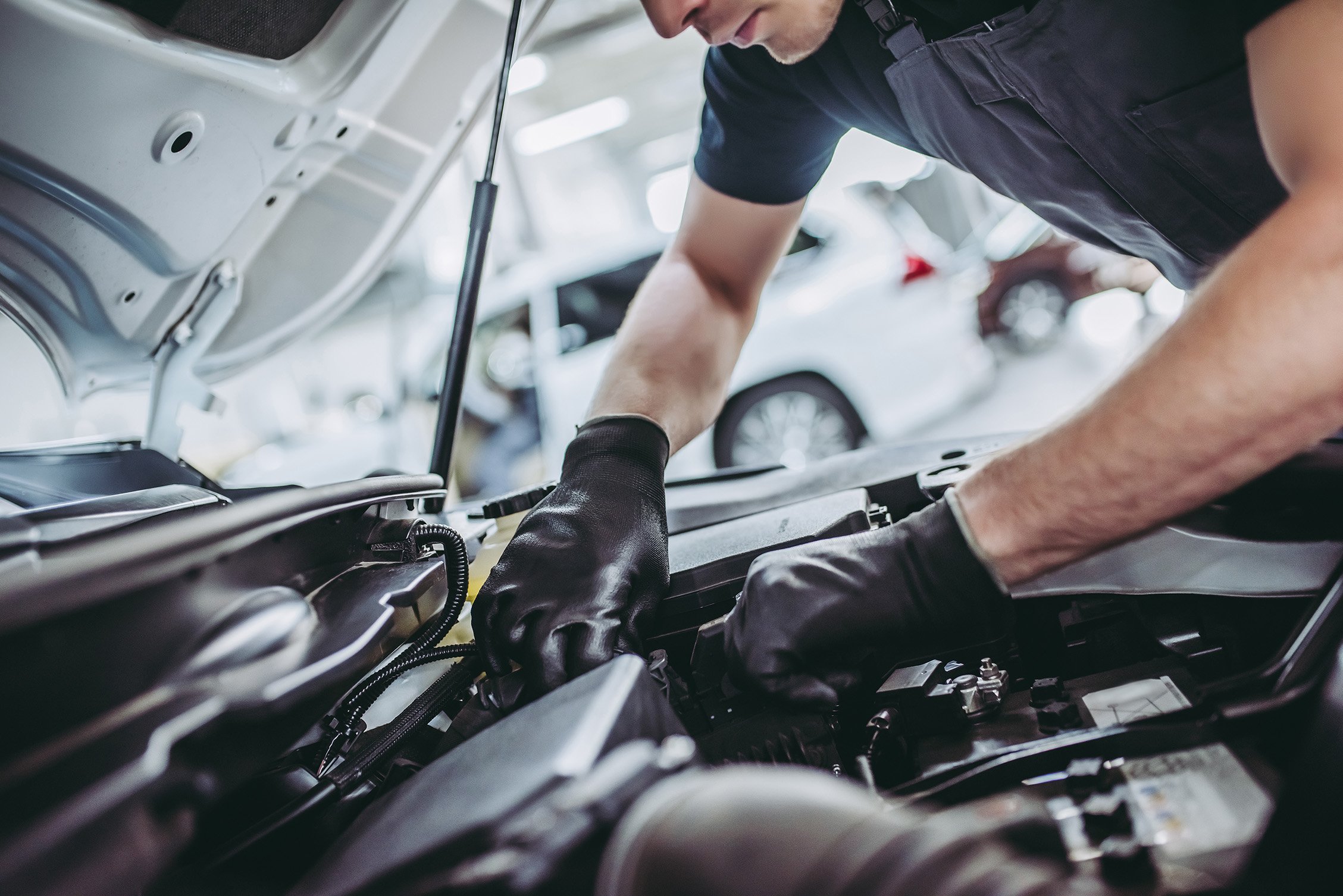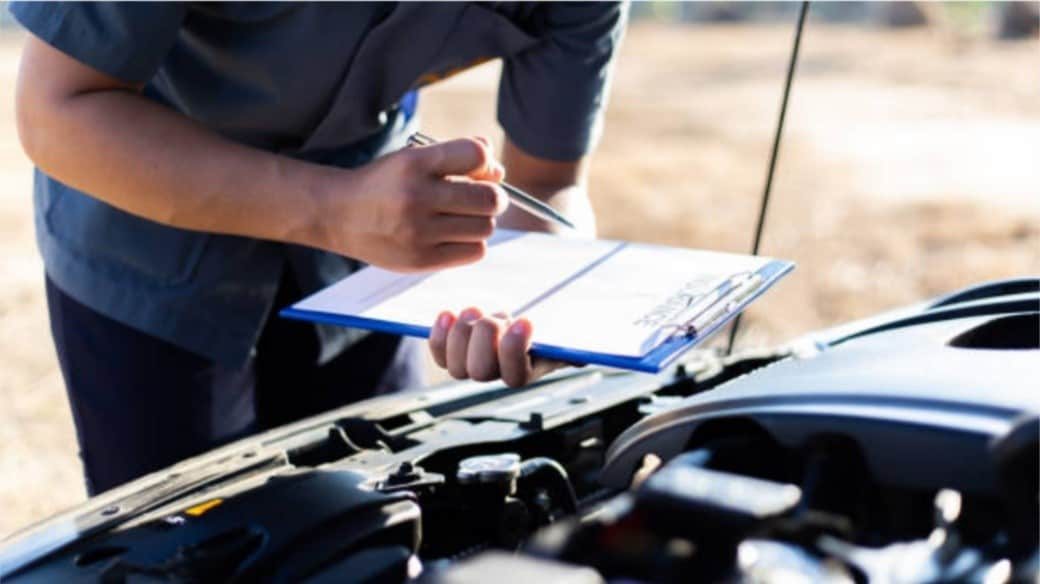All Categories
Featured
Accountable for integrating the turning of the crankshaft and camshaft, the timing belt makes certain the engine's valves close and open at the appropriate times during the combustion procedure. If the timing belt fails, it can result in serious engine damage.
What Is a Timing Belt? The timing belt is a long, toothed rubber or composite belt that connects the crankshaft to the camshaft(s) in an interior combustion engine. Its task is to keep the engine's valves and pistons in sync, guaranteeing the engine runs effectively. The timing belt additionally manages various other important engine functions like the water pump and the power steering pump, relying on the automobile.
![]()
Without the correct timing, the engine's shutoffs and pistons can clash, resulting in expensive and comprehensive damages. Therefore, replacing the timing belt on schedule is one of the most effective methods to guarantee your engine runs at its ideal and protect against pricey repair services.
Why Timing Belt Replacement Matters. Preventing Catastrophic Engine Damages: The most significant risk of not replacing a worn timing belt is engine failure. If the timing belt breaks while the engine is running, the camshaft and crankshaft can become misaligned, triggering the pistons and valves to collide. This can lead to bent shutoffs, damaged pistons, or even a destroyed engine. Changing the timing belt at the suggested intervals is the best means to stop such tragic damages, saving you from the stress and anxiety and high cost of engine fixings or substitute.
![]()
Keeping Engine Performance: A timing belt that's in good condition makes sure that all engine components function in best consistency. If the timing belt is put on or stretched, it can trigger the engine to lose power, experience harsh idling, or struggle to start. By replacing the timing belt regularly, you can keep your engine running at peak efficiency, which helps preserve ideal gas economic climate and performance.
Preventing Unexpected Break downs: A damaged timing belt can cause your engine to stop quickly, possibly leaving you stranded in the middle of a trip. By changing your timing belt in a timely manner, you minimize the risk of unexpected failures that can leave you in a inconvenient or harmful situation. Routine upkeep lowers the opportunities of experiencing these sort of interruptions, helping you stay on the roadway much longer without bothering with your engine falling short.
Affordable Upkeep: Timing belt substitute is much cheaper than fixing or changing an engine that's been harmed as a result of a timing belt failing. While the expense of changing the timing belt may differ depending upon your automobile and its area, it is far extra inexpensive than the prices connected with major engine repair work or replacements. Replacing your timing belt at the suggested intervals can conserve you a considerable quantity of money over the lengthy run by preventing damages to your engine.
When Should You Replace Your Timing Belt? The timing belt doesn't last forever, and the majority of producers suggest changing it in between 60,000 and 100,000 miles. The specific timing depends on your vehicle's make, version, and driving conditions, so it's necessary to examine your proprietor's handbook for details guidance.
Indicators that your timing belt might need focus consist of uncommon engine sounds (such as a high-pitched whining or ticking audio), problem starting the engine, or a reduction in engine efficiency. If you notice any one of these indicators, it's crucial to have the timing belt inspected by an expert technician.
![]()
Final thought. The timing belt is a crucial however tiny component of your engine, and normal substitute is essential to keeping your lorry's performance and avoiding costly damage. By staying on top of timing belt maintenance, you'll ensure your engine operates effectively, prevent unexpected break downs, and shield your vehicle from major fixings. Watch on your lorry's recommended timing belt replacement routine, and constantly speak with a trusted auto mechanic to keep your engine running smoothly for many years to find.
What Is a Timing Belt? The timing belt is a long, toothed rubber or composite belt that connects the crankshaft to the camshaft(s) in an interior combustion engine. Its task is to keep the engine's valves and pistons in sync, guaranteeing the engine runs effectively. The timing belt additionally manages various other important engine functions like the water pump and the power steering pump, relying on the automobile.

Without the correct timing, the engine's shutoffs and pistons can clash, resulting in expensive and comprehensive damages. Therefore, replacing the timing belt on schedule is one of the most effective methods to guarantee your engine runs at its ideal and protect against pricey repair services.
Why Timing Belt Replacement Matters. Preventing Catastrophic Engine Damages: The most significant risk of not replacing a worn timing belt is engine failure. If the timing belt breaks while the engine is running, the camshaft and crankshaft can become misaligned, triggering the pistons and valves to collide. This can lead to bent shutoffs, damaged pistons, or even a destroyed engine. Changing the timing belt at the suggested intervals is the best means to stop such tragic damages, saving you from the stress and anxiety and high cost of engine fixings or substitute.

Keeping Engine Performance: A timing belt that's in good condition makes sure that all engine components function in best consistency. If the timing belt is put on or stretched, it can trigger the engine to lose power, experience harsh idling, or struggle to start. By replacing the timing belt regularly, you can keep your engine running at peak efficiency, which helps preserve ideal gas economic climate and performance.
Preventing Unexpected Break downs: A damaged timing belt can cause your engine to stop quickly, possibly leaving you stranded in the middle of a trip. By changing your timing belt in a timely manner, you minimize the risk of unexpected failures that can leave you in a inconvenient or harmful situation. Routine upkeep lowers the opportunities of experiencing these sort of interruptions, helping you stay on the roadway much longer without bothering with your engine falling short.
Affordable Upkeep: Timing belt substitute is much cheaper than fixing or changing an engine that's been harmed as a result of a timing belt failing. While the expense of changing the timing belt may differ depending upon your automobile and its area, it is far extra inexpensive than the prices connected with major engine repair work or replacements. Replacing your timing belt at the suggested intervals can conserve you a considerable quantity of money over the lengthy run by preventing damages to your engine.
When Should You Replace Your Timing Belt? The timing belt doesn't last forever, and the majority of producers suggest changing it in between 60,000 and 100,000 miles. The specific timing depends on your vehicle's make, version, and driving conditions, so it's necessary to examine your proprietor's handbook for details guidance.
Indicators that your timing belt might need focus consist of uncommon engine sounds (such as a high-pitched whining or ticking audio), problem starting the engine, or a reduction in engine efficiency. If you notice any one of these indicators, it's crucial to have the timing belt inspected by an expert technician.

Final thought. The timing belt is a crucial however tiny component of your engine, and normal substitute is essential to keeping your lorry's performance and avoiding costly damage. By staying on top of timing belt maintenance, you'll ensure your engine operates effectively, prevent unexpected break downs, and shield your vehicle from major fixings. Watch on your lorry's recommended timing belt replacement routine, and constantly speak with a trusted auto mechanic to keep your engine running smoothly for many years to find.
Latest Posts
Maintain Your Carpeting Looking Its Ideal with Easy, Professional Treatment
Published Apr 20, 25
2 min read
Digging In at Deauville Inn
Published Apr 20, 25
1 min read
Discover the Montclare Promise - Professional Auto Care
Published Apr 20, 25
2 min read